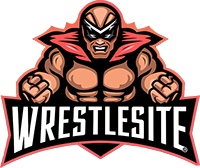WWE Hall of Famer calls out Strickland for public remarks and sets the record straight
Summary
– Swerve Strickland referenced Booker T in a Vlad TV interview discussing race in wrestling
– Booker T addressed the comments on his podcast, clarifying his stance and past support for Strickland
– He shared details of a private conversation and expressed disappointment over the situation
Booker T has broken his silence following comments made by AEW star Swerve Strickland during a recent interview on Vlad TV. The WWE Hall of Famer responded to Strickland’s remarks about race and respect in professional wrestling—specifically, a moment where Booker was referenced in connection to Vince McMahon’s controversial past use of the N-word.
Booker T didn’t hold back. He replayed Strickland’s comments in full on his podcast before firmly clarifying his own. Booker explained that he has worked for WWE for over 20 years and has always felt treated fairly. He emphasized that his previous remarks never discredited Strickland’s own experiences but questioned the context of the interview and the platform on which it was shared.
He also recalled running into Strickland at a recent event and directly confronting him. Booker expressed disappointment in Strickland, not only for the public statement but also for allowing himself to be used in a way that may pit Black wrestlers against each other.
Booker said he has always supported Strickland, even praising him as a deserving AEW World Champion and one of the best in the business. He made it clear that his frustration wasn’t rooted in ego—but in principle.
He also criticized Vlad TV as a platform, saying he had previously declined invitations to appear on the show out of concern for how Black men are portrayed and used to stir conflict. Booker pointed out that his legacy in wrestling includes breaking down barriers, not creating them, and that his mission has always been to open doors for future generations.
In closing, Booker reiterated his stance: he doesn’t apologize for how he’s handled racism in his career, and he refuses to be cast as a villain in someone else’s narrative.





